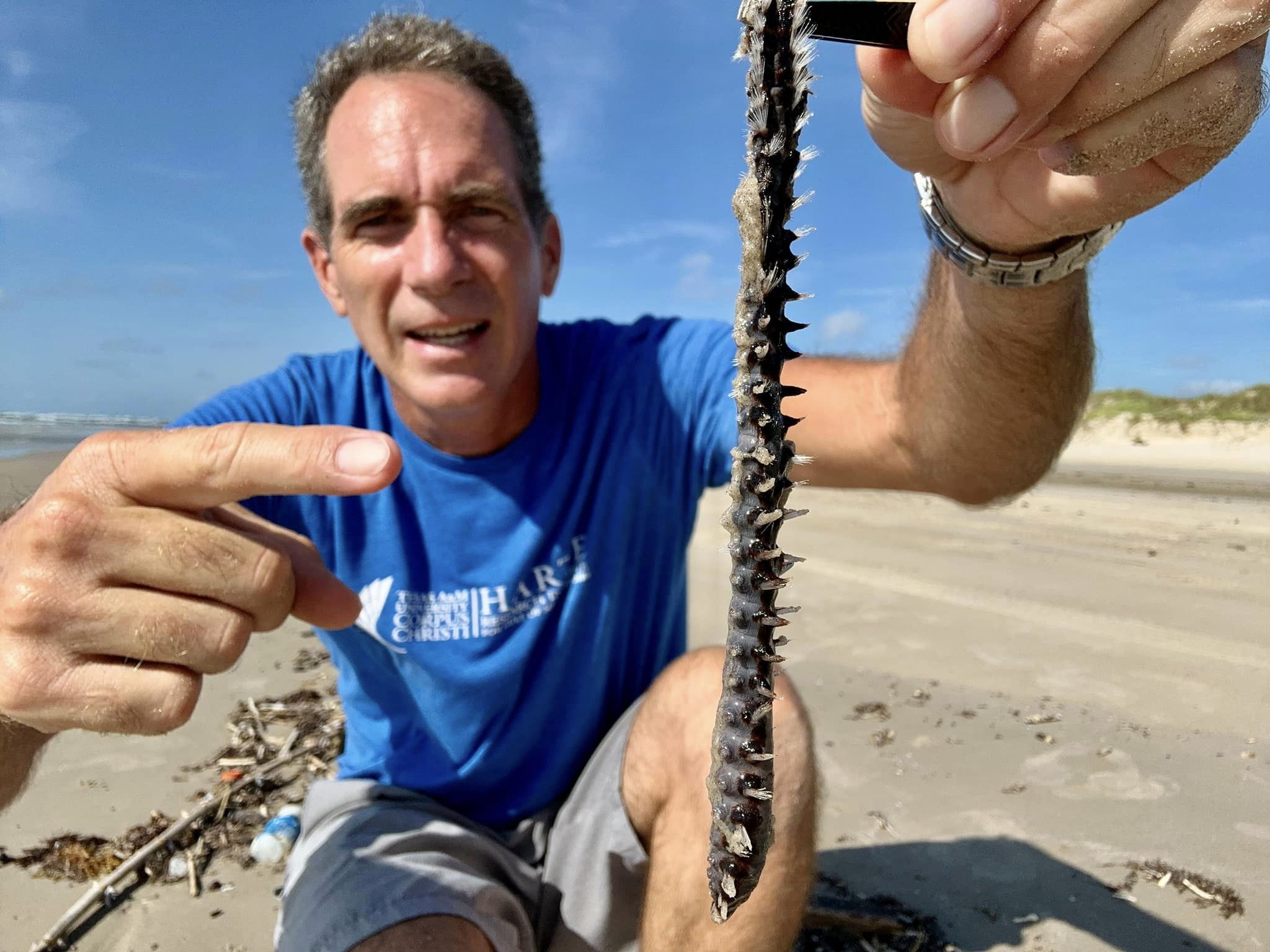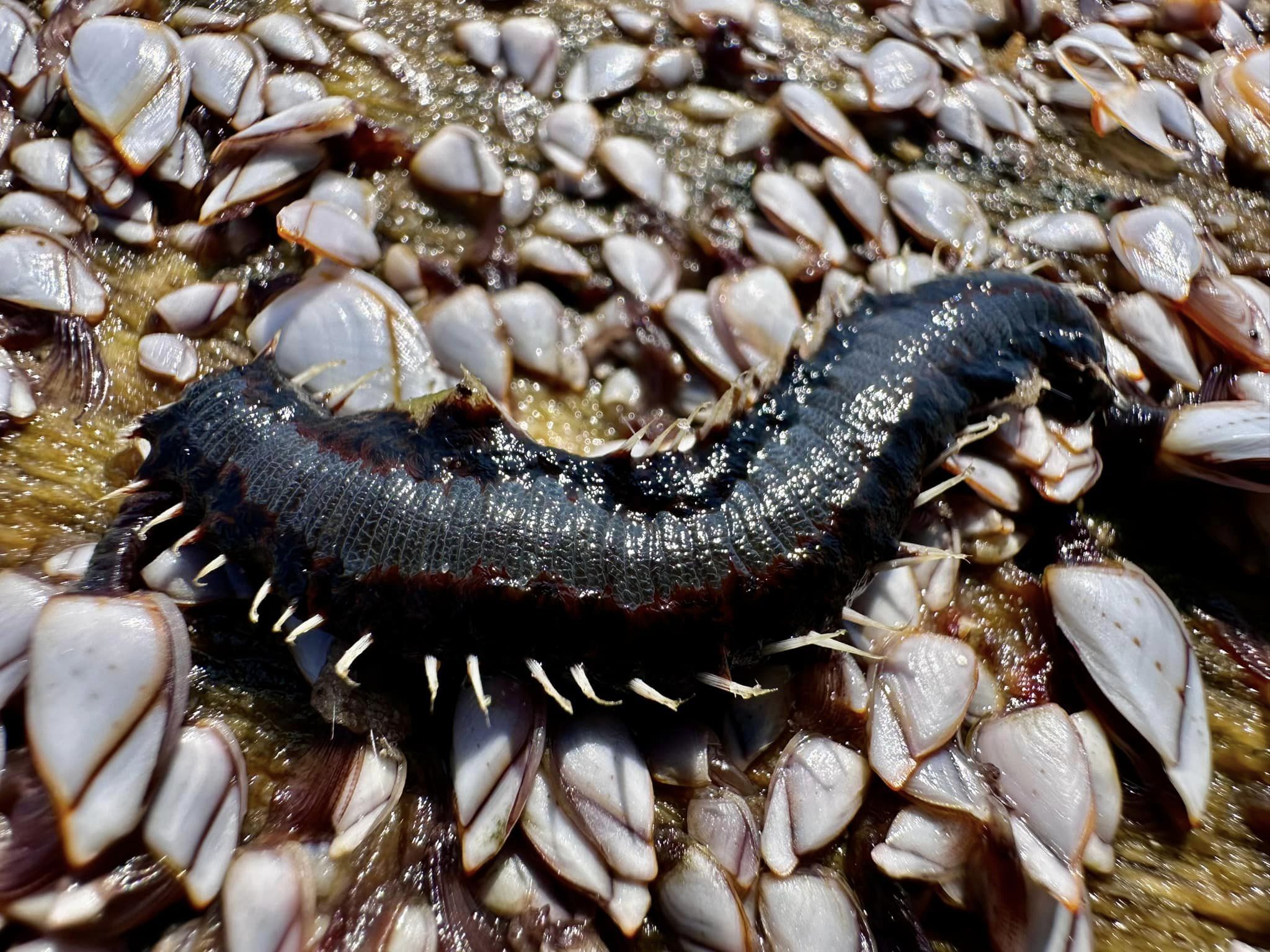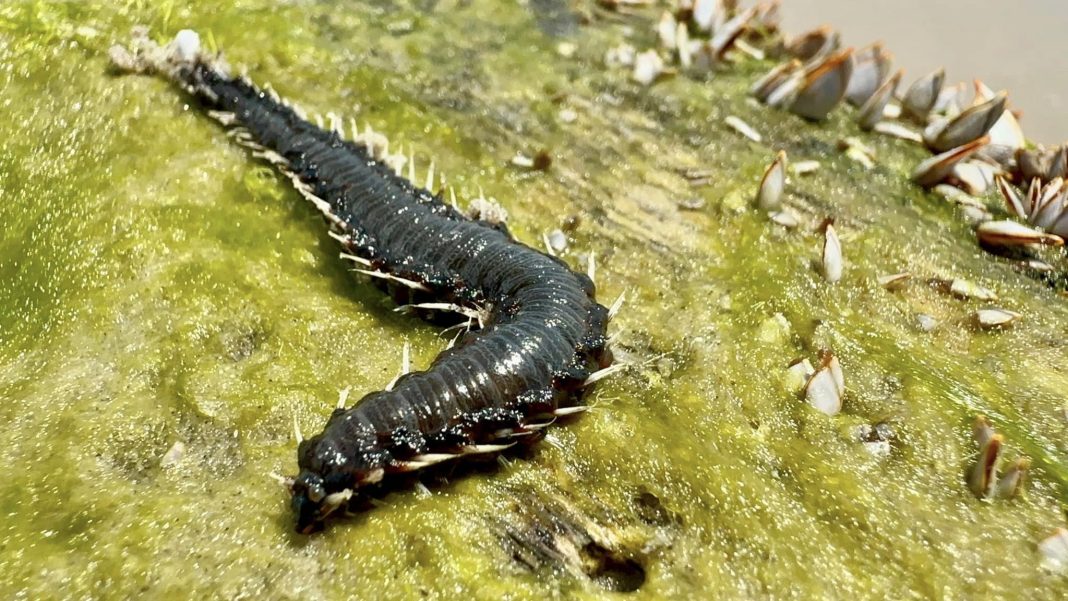|
Only have a minute? Listen instead
Getting your Trinity Audio player ready...
|
If you’re headed to the Texas beach, beware.
Centipede-like creatures called bearded fireworms are washing up on Mustang Island, a barrier island near Corpus Christi and Port Aransas. The aquatic worms are known for their particularly nasty sting.
“Your worst nightmares are washing up right now in the form of bearded fireworms!” the Harte Research Institute, which is part of Texas A&M University, wrote on Facebook this week. “The fireworms get their name because of the pain they inflict on anyone that dares to touch them; it literally feels like fire for about three hours.”

The site of the sting can even feel sensitive for weeks afterward, said the research institute. A photograph of Jace Tunnell, the institute’s engagement director, is shown carefully handling the worm.
These worms are covered in white bristles, which are hollow, filled with a neurotoxin and break off when touched, the institute said. In addition to the Gulf of Mexico, the worms are found in the Atlantic Ocean and Mediterranean Sea.
Researchers found the aquatic worms on large logs covered in gooseneck barnacles, which the worms might have been eating, the institute said.
Fireworms are voracious predators that feed on soft and hard corals, anemones, and small crustaceans, according to the MarineBio Conservation Society. They are typically 5 to 10 centimeters in length, but can reach up to 35 centimeters, iNaturalist says on its website.
If stung, iNaturalist suggests applying and removing adhesive tape to remove spines, then applying alcohol to alleviate pain.

Worms are far from the only thing washing up on the beach. Researchers from the institute comb the beaches weekly for sea life and endangered birds, but they also find debris. They have discovered creepy baby dolls, glass “witch bottles,” old toothbrushes, volleyballs, a mannequin leg, a metal toolbox, a plastic bowling ball, canisters of cigarettes and, yes, even messages tucked inside bottles.
Texas beaches have posed another danger this year, as well. An outbreak of a flesh-eating bacteria called vibrio along Texas’ Gulf Coast has infected roughly a dozen people in Galveston County. A 66-year-old Texas man died of a vibrio infection he contracted while fishing in neighboring Brazoria County.
©2024 The Dallas Morning News. Visit dallasnews.com. Distributed by Tribune Content Agency, LLC.




